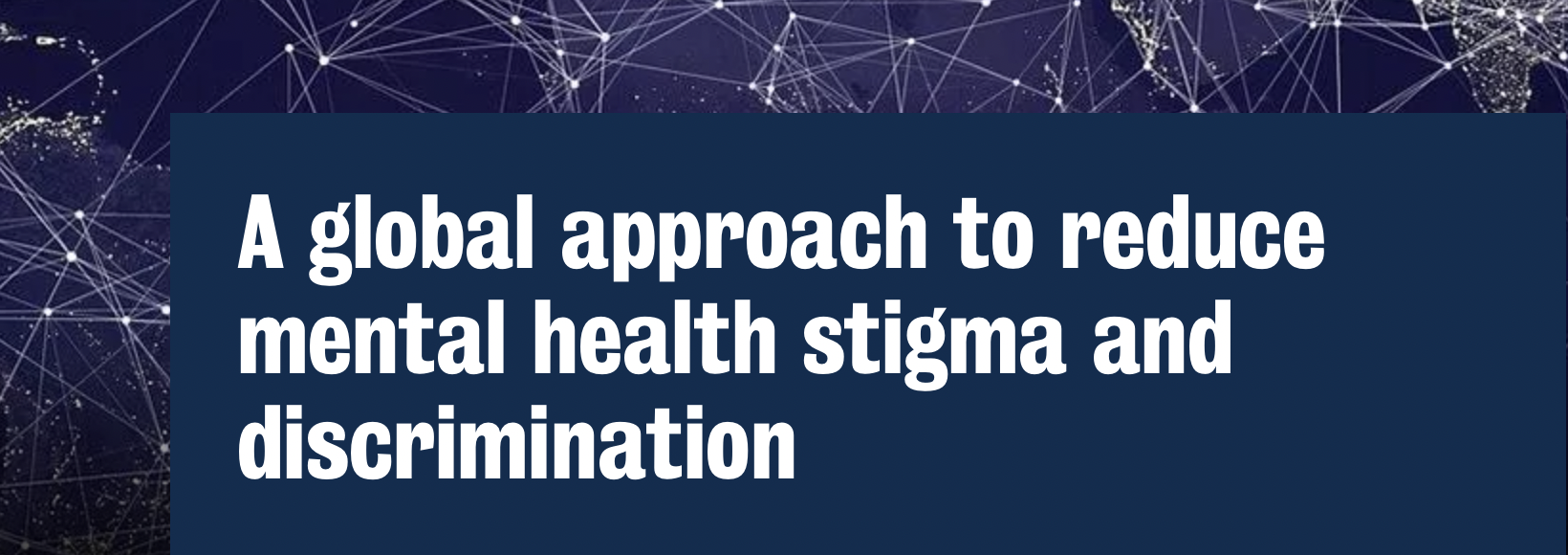Mental health stigma and discrimination is a global phenomenon, with severe consequences in terms of social exclusion and inequitable treatment towards people with experience of mental health conditions.
The impacts of stigma range from reducing engagement with clinical services (barriers to seeking help), less clinical care, including biases in healthcare provider behaviour in relation to people with mental health conditions. Forms of social exclusion may also appear in marriage, partnerships and a wide range of interpersonal relationships including harming occupational prospects in the workplace. Attitudes towards mental health also vary amongst ethnicities, cultures and countries which can further impact barriers to seeking help. This inequitable treatment often amounts to the denial of basic human rights that are the hallmarks of personhood.
The time is now right for a detailed reappraisal of this field which will be initiated through The Lancet Commission on Stigma and Discrimination in Mental Health. The Commission will set out practical and radical recommendations to guide action at international, national and local levels with the overarching aim of eradicating mental health related stigma and discrimination.
With health being a human right and mental health no less important than physical health, the Commission will forcefully argue for the right to good mental health outcomes for all. The Commission aims to produce sustained resources to eradicate stigma and discrimination related to mental health conditions, all as core elements of what it means to live in a civilised world.
A global approach to reducing stigma and discrimination
Since stigma and discrimination occur globally a co-ordinated international effort is required to produce radical commission recommendations. As the manifestations of stigma and discrimination vary by context and culture the commission is formed of a panel of international global experts from around the world, including experts by experience. The twenty-one Commissioners who are drawn from fifteen different countries and have extensive experience in governmental and non-governmental organisations, service user groups, universities and other research centres. Many of the Commissioners are from low- and middle-income countries and most are women.
Service user involvement is central to evidence-based interventions to reduce stigma and discrimination. The commission is led by co-chairs Charlene Sunkel, Founder/CEO of the Global Mental Health Peer Network (Johannesburg, South Africa) and Professor Sir Graham Thornicroft, Community Psychiatrist and Professor of Community Psychiatry at King’s College London. The commission co-chairs bring their own, and their family, experience of living with severe mental health conditions, alongside their understanding of the global picture of evidence and practice related to stigma reduction. The Commission Advisory Board will also include substantial representation from service user groups worldwide, including from low- and middle-income countries.
The aims of the commission
This Lancet Commission has six aims:
- Define stigma and discrimination. This will provide an integrative framework which will guide the Commission work and will help set out the levels at which stigmatisation and discrimination take place.
- Summarise the global evidence of how people with mental health conditions experience stigma and discrimination.
- Describe the wide-ranging impacts of stigma, including barriers to clinical services, biases in the behaviour of health-care providers, violation of basic human rights, and adverse social implications such as in marriage, partnerships and in the workplace.
- Conduct a literature review of the relevant data on effectiveness and cost-effectiveness of interventions to reduce stigma and discrimination in the field of mental health.
- Identify what policies, resources, initiatives, culturally relevant narratives, and interventions are required to eradicate mental health-related stigma and discrimination, and what needs to be done to drive the systemic legal, financial, social, and health changes that are required.
- Provide a set of actionable recommendations, including measures developed with key stakeholder and target groups, service users and carers, policy makers, clinicians, educators, carers, celebrities, philanthropists and researchers. The Commission report will include narratives of persons with lived experience throughout in order to bring the content to life. A Lived Experience Writing Group will be collecting a range of lived experience narratives to be incorporated across the report topics.
The work of the Commission will take two years with the final report to be published in September 2022. To optimise the impact of this work for people affected by stigma, the Commission plan to identify communication strategies to enhance public dissemination and engagement with for example, service users, carers, the print, broadcast and social media, philanthropists, and advocacy groups.
How can we all contribute?
The Commission are seeking to gather information about the impact of stigma on individuals, families, communities and at wider structural and systemic levels. To actively contribute to the work the Commission welcomes feedback which detail your experiences of stigma and discrimination related to mental health, including what has been helpful to counteract these experiences. Feedback can be submitted via the Commission website.
This story was first published on 16 July 2021, on King’s College London website.

